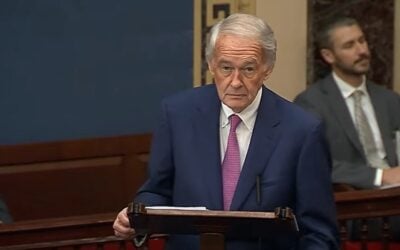Ministers from both Scotland and Wales have said energy storage solutions are integral to the “future direction” of energy use in the UK as they warned against cuts to renewable energy subsidies.
Scotland’s energy minister Fergus Ewing and Wales’ minister for natural resources Carl Sargeant addressed the UK energy and climate change secretary Amber Rudd in a letter calling for her to consider the impact recent proposals to curtail subsidies for sub-5MW solar farms would have, particularly on community-owned energy projects.
Enjoy 12 months of exclusive analysis
- Regular insight and analysis of the industry’s biggest developments
- In-depth interviews with the industry’s leading figures
- Annual digital subscription to the PV Tech Power journal
- Discounts on Solar Media’s portfolio of events, in-person and virtual
Last month the recently elected Conservative government unveiled plans to end Renewables Obligation (RO) support for all ground-mounted projects a year earlier than planned due to a budgetary overspend, a move which Solar Intelligence analysis revealed would wipe around 4GW off of the UK’s solar pipeline.
However both Ewing and Sargeant used the backdrop of subsidy cuts to highlight the potential that energy storage solutions would have on smaller-scale ground-mounted solar farms.
“We both see that the future direction for energy is one of local generation and supply, based on renewable sources, and smart storage and local grid management, with significant local benefit,” the letter read.
Ewing and Sargeant also warned that the current proposals would “significantly damage” the prospects for further distributed and local generation in the UK, which would in turn result in a significantly reduction in activity within the small-scale market.
“The small scale industry will go into a hiatus until either the retail price of electricity, or advances in storage and local supply, make projects commercially viable without subsidy,” the pair said.
The Department for Energy and Climate Change (DECC) has responded by stating that it will be considering support for community energy schemes under the wider feed-in tariff review later this year, however there has yet to be any concrete support mechanism which would include storage solutions.
Rudd has claimed to be a proponent of storage having talked up its potential at an energy and climate change select committee hearing last month but with little to no room for manoeuvre within the country’s Levy Control Framework (LCF) – the government mechanism used to manage the cost of renewable energy subsidies – her department would find it hard to justify extending support for storage under the LCF’s current guise.
But that hasn’t stopped Rudd’s opposition counterparts from talking up its potential. Labour MP Jeremy Corbyn, the overwhelming favourite to be voted leader of the opposition next month, spoke recently about the UK’s energy market and its “strange” post-war energy market which he said was created by former Prime Minister Margaret Thatcher’s privatisation of the National Grid and a strategy which focused almost entirely on centralised energy generation.
In an interview with Greenpeace’s Energy Desk, Corbyn said he would favour a renationalised National Grid and far more distributed generation in the UK featuring considerable rooftop solar and storage deployment and spoke of how this could be funded.
“Every new building should essentially be covered in PV cells. It’s a question of funding that through national investment strategies through the green energy bank,” Corbyn said.
Scotland's energy minister Fergus Ewing has criticised policy proposals put forward by the Department for Energy and Climate Change and Amber Rudd. Image: The Scottish Government.
“
We both see that the future direction for energy is one of local generation and supply, based on renewable sources, and smart storage and local grid management, with significant local benefit".






